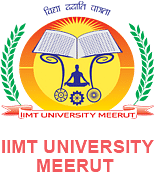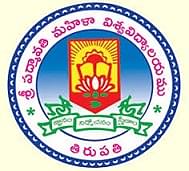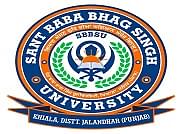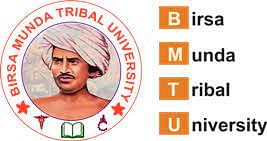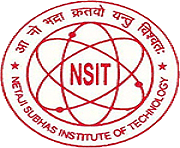Pioneering Global Leadership: Pursuing a Ph.D. in Global Strategy
In an era where businesses and economies are more interconnected than ever,
the need for innovative leaders who can navigate complex global landscapes is
paramount. A Ph.D. in Global Strategy equips scholars with advanced knowledge
and skills to develop and implement strategies that drive organizational
success across borders. This blog explores the nuances of pursuing a Ph.D.in Global Strategy at Mumbai, including the admission process, eligibility
criteria, and syllabus.
The Essence of a Ph.D. in Global Strategy
A Ph.D. in Global Strategy is designed for individuals who aspire to
contribute to academic research, policy-making, and high-level strategic roles
within global organizations. The program focuses on developing an in-depth
understanding of global business dynamics, strategic management, and the
various cultural, economic, and political factors influencing global markets.
Admission Process for a Ph.D. in Global Strategy
The admission process for a Ph.D. in Global Strategy college Mumbai
can be rigorous and competitive, involving several critical steps:
1. Research
Programs and Universities: Start by researching universities that
offer a Ph.D. in Global Strategy. Look for programs that align with your
research interests and career goals.
2. Application
Form: Complete the application form available on the university’s
website. This form typically requires personal details, educational background,
and other pertinent information.
3. Academic
Transcripts: Submit your academic transcripts, including undergraduate
and master’s degree qualifications. A strong academic record in relevant fields
such as business, economics, or international relations is crucial.
4. Letters
of Recommendation: Most programs require two to three letters of
recommendation from academic or professional references who can attest to your
research capabilities and academic potential.
5. Research
Proposal: A well-crafted research proposal outlining your intended
research topic, objectives, methodology, and its significance in the field of
global strategy is often required.
6. Statement
of Purpose: Write a compelling statement of purpose that explains your
motivation for pursuing a Ph.D. in Global Strategy, your research interests,
and your career aspirations.
7. Standardized
Test Scores: Some universities may require GRE or GMAT scores.
Additionally, international applicants might need to submit TOEFL or IELTS
scores to demonstrate English proficiency.
8. Interview:
Shortlisted candidates may be invited for an interview, which could be
conducted in person, over the phone, or via video conferencing. This interview
assesses your suitability for the program.
Eligibility Criteria for a Ph.D. in Global Strategy
Eligibility Ph.D. in Global Strategy typically include the following:
1. Educational
Qualifications: Applicants should have a master’s degree in a relevant
field such as business, economics, international relations, or a related
discipline. A strong academic record is essential.
2. Research
Experience: Prior research experience, including published papers,
conference presentations, or a master’s thesis, can strengthen your
application.
3. Professional
Experience: While not always required, relevant professional
experience in global business, strategy, or management can be advantageous.
4. Language
Proficiency: Non-native English speakers must demonstrate proficiency
in English through standardized tests like TOEFL or IELTS.
5. Letters
of Recommendation: Strong recommendations from academic or
professional references who can vouch for your research capabilities and
academic potential.
6. Research
Proposal: A clear and well-defined research proposal that aligns with
the expertise of the faculty and the research focus of the program.
Syllabus for a Ph.D. in Global Strategy
The syllabus Ph.D. in Global Strategy is designed to provide
comprehensive knowledge and research skills necessary to excel in the field.
While specific courses and topics may vary by institution, a typical syllabus
might include:
1. Advanced
Global Strategy: This course delves into the theoretical frameworks
and practical applications of global strategy, including competitive advantage,
strategic alliances, and international expansion.
2. International
Business Environment: Students explore the global business
environment, examining economic, political, and cultural factors that influence
international business operations.
3. Research
Methods in Business: This course covers quantitative and qualitative
research methodologies, equipping students with the skills needed to conduct
rigorous academic research.
4. Cross-Cultural
Management: Understanding and managing cultural differences is crucial
in global strategy. This course examines theories and practices related to
cross-cultural communication, leadership, and negotiation.
5. Global
Supply Chain Management: Students learn about the strategies and
practices for managing global supply chains, including logistics, sourcing, and
production planning.
6. International
Financial Management: This course covers financial decision-making in
a global context, including foreign exchange risk management, international
investment strategies, and global capital markets.
7. Corporate
Social Responsibility and Ethics: Ethical considerations and corporate
social responsibility in international business are the focus of this course.
Students learn about the importance of ethical behavior and sustainable
practices in global business.
8. Strategic
Management: Students learn frameworks and tools for formulating and
implementing business strategies on a global scale. Case studies of
multinational corporations are often used to illustrate key concepts.
9. Emerging
Markets: This course explores the opportunities and challenges
presented by emerging markets. Topics include market entry strategies, risk
management, and the role of emerging markets in the global economy.
10. Dissertation
Research: The core component of the Ph.D. program is the dissertation,
which involves original research on a specific topic within global strategy.
Students work closely with faculty advisors to develop and conduct their
research, culminating in a written dissertation and oral defence.





